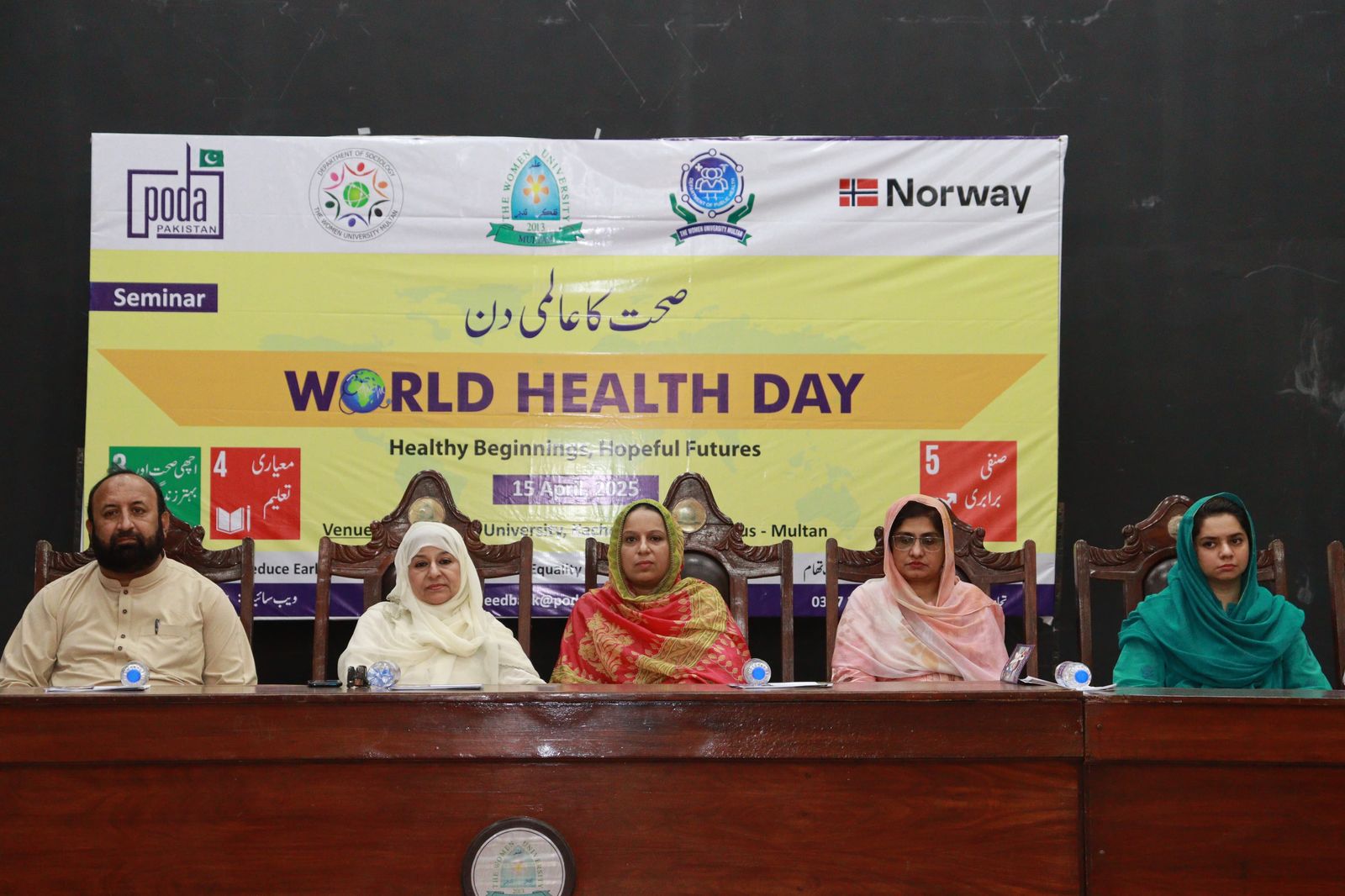
LAHORE: Speakers at a seminar emphasised the urgent need for a comprehensive programmee to address women’s reproductive health needs in Pakistan.
They highlighted that this is essential, given the numerous challenges women face in accessing and exercising their sexual and reproductive health rights.
Women University Multan (WUM) in collaboration with the PODA organised the seminar to mark the World Health Day on Tuesday.
PODA is implementing a three-year project, “Reduce Early Marriages to Enhance Gender Equality”.
The project acknowledges the link between child marriages and healthcare in Pakistan, aiming to reduce early pregnancy and related health risks for young mothers and their children. A key strategy involves advocating for a uniform law establishing a minimum age for marriage to mitigate child marriages and associated health issues.
The speakers expressed that child marriage and early childbirth severely impact the physical and mental well-being of young girls, with long-lasting consequences throughout their lives. They emphasised that promoting education is the most effective way to address this issue.
WUM Pro-Vice Chancellor Prof Kalsoom Paracha, noted that the theme “Healthy Beginnings, Hopeful Futures” brings attention to the critical need for ensuring a healthy start in life.
She stated that combating child marriage and expanding access to quality healthcare are key to creating a more equitable and promising future, especially for women and adolescents in Pakistan.
District Population Welfare Officer Dr Khizr Hayat highlighted that Pakistan’s population is growing at a rate of 2 percent, and by 2050, it is projected to become the third most populous country in the world.
He noted that the five most populous nations — China, India, the United States, Indonesia, and Pakistan — together account for a combined population of 3.6 billion.
Citing a United Nations forecast, he warned that the global population is expected to exceed 10 billion by the year 2100.
“In this alarming context,” he added, “child marriage — particularly for girls — poses a significant challenge. The abrupt shift in roles, responsibilities, and environment places intense psychological stress on young girls. Their physical and emotional immaturity makes them more vulnerable to serious health conditions such as depression, sepsis, abuse, complications during childbirth, and increased risk of HIV due less say in such matters,” he added.
He also said that the effects of early marriages extend to future generations and a child born to an educated mother is 50% more likely to survive past the age of five and is twice as likely to attend school.
Published in Dawn, April 16th, 2025
https://www.dawn.com/news/1904515/womens-reproductive-health-discussed
